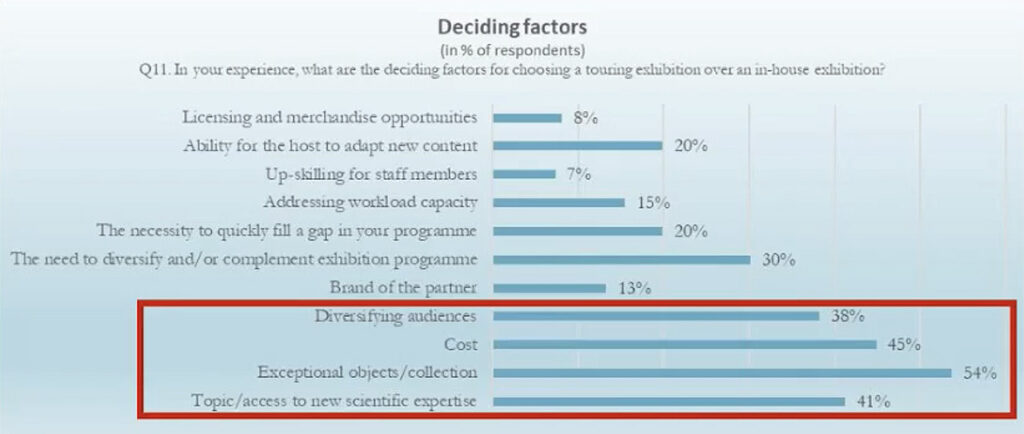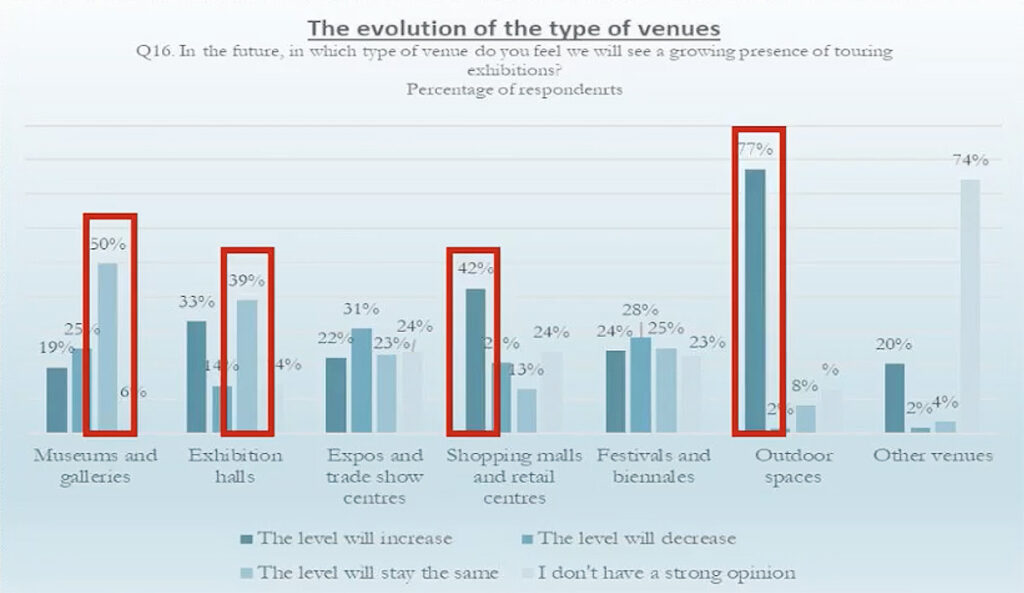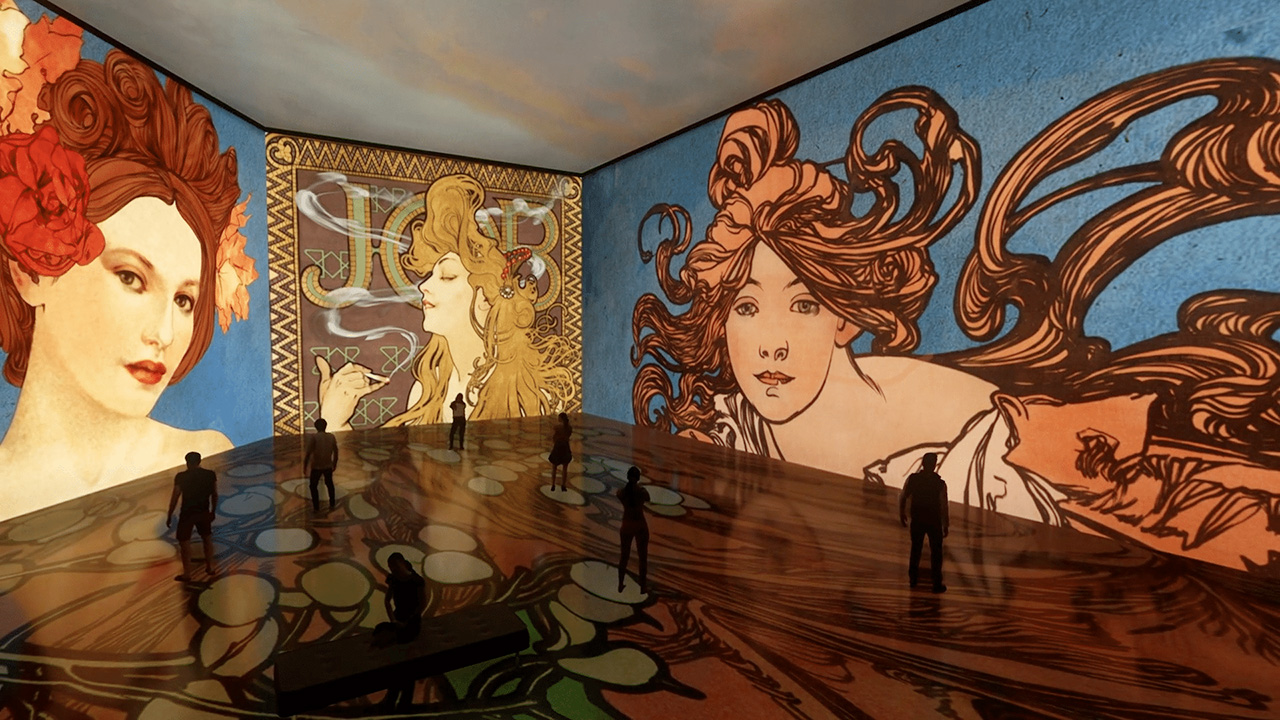On March 25, touring exhibitions platform Teo hosted its first-ever virtual event, Teo Live. Attended by 250 participants from over 50 countries, Teo Live represents a sea change in the industry, helping to better centralize the networking needs of a necessarily nomadic, international community of vendors and professionals.
Featuring keynote speakers Anais Aguerre and Otone Doi of Culture Connect, a consultancy specializing in institutional collaboration, the event kicked off with their analysis of the organization’s first Cultural Dialogue Survey, research developed in collaboration with Teo to focus on the future of the touring exhibitions sector. A series of 2-minute presentations by 23 exhibition producers from across the world followed, before participants had the option to meet with presenters in individual virtual breakout rooms for up to an hour.
“In the current circumstances, it’s even more relevant and precious to have this possibility to be together,” Teo co-founder and CEO Manon Delaury tells Jing Culture & Commerce. “This is only our first event, and the diversity we’re trying to achieve on the platform was definitely taking place.” She underscored that the results of the Cultural Dialogue Survey were quite optimistic, especially given the COVID restrictions of the past year. “People were considering [touring exhibitions] an important resource of value for cultural institutions internationally; 83 percent of respondents said that touring exhibitions are important for cultural exchange, and the value of these exhibitions is really here to stay.”

The Cultural Dialogue Survey saw respondents rate touring exhibitions over in-house shows for their exceptional content, cost-effectiveness, and potential to diversify audiences. Image: Culture Connect
The Cultural Dialogue Survey, which gathered responses from 136 participants representing the global touring community, also introduced some key trends that bode well for the industry’s outlook. “Obviously, there’s been a growth of outdoor experiences,” Delaury reports, “and with that, the diversification of experiences, more types of exhibitions in more types of environments, not just in museums.” She noted that outdoor programming drastically reduces healthy and safety risks for visitors while still augmenting their cultural absorption. It’s an observation reflected in the survey’s results: a majority of respondents anticipate outdoor spaces (77 percent) and retail centers (50 percent) becoming key venues for touring exhibitions.

A majority of survey respondents noted that outdoor spaces, retail centers, and exhibition halls will see the growing presence of touring exhibitions in a post-COVID climate. Image: Culture Connect
A good number of survey respondents further indicate a cautious confidence in the post-pandemic future of touring exhibitions. While funding, travel restrictions, and sustainability concerns may pose roadblocks ahead, 48 percent report planning or acting on innovative solutions to meet these challenges.
Delaury credits the success of Teo Live to the “co-constructed” nature of Teo’s platform. “We’re really listening to members of the community, and are open to feedback about the platform and about the event. That dialogue is very important to us.” She describes the subsequent producer breakout meetings as “lively” and interactive, mirroring the conceit of touring exhibition production itself. “Touring exhibitions is a blend of so many different skills and backgrounds; the identity of the producers contributes strongly to the identity of their show — it’s an important part of the story”.
Since professionals in this sector operate from every corner of the globe, the virtual aspect of Teo Live acted as a boon rather than a merely pragmatic COVID-era detraction. It’s also why host membership to Teo’s platform remains entirely free for cultural institutions. “We really want to foster the sharing of best practices and information,” Delaury emphasized.



